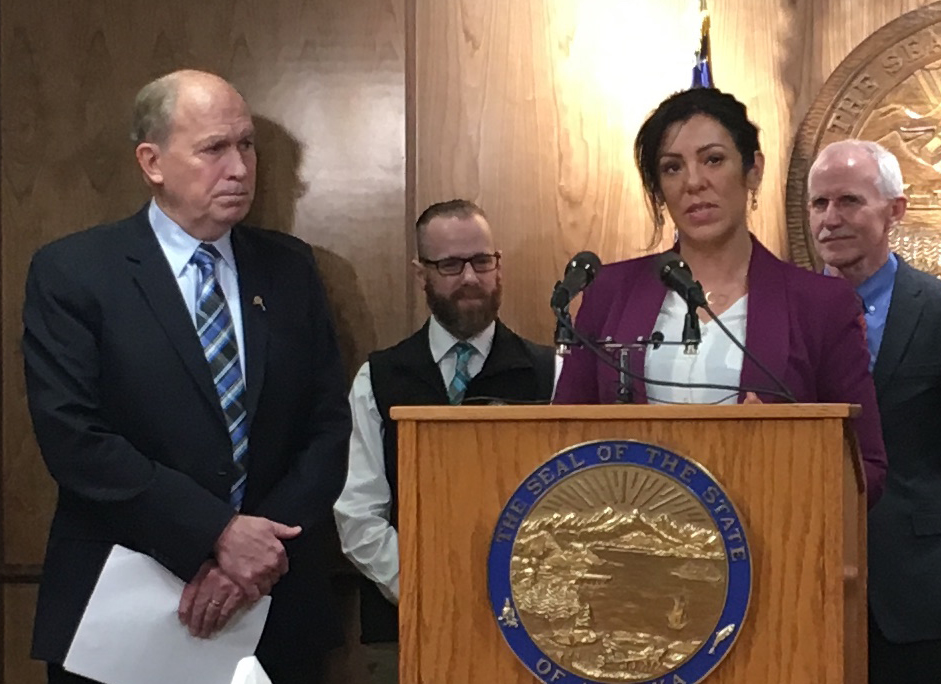
Gov. Bill Walker took action this week to try to stem the epidemic of overdose deaths from heroin and other opioid drugs.
Walker signed a disaster declaration that’s intended to make it easier to give overdose victims the life-saving overdose antidote naloxone.
More than 120 Alaskans have died from opioid overdoses over the past three years. Walker said declaring a disaster will enable a coordinated statewide response.
“I mean, it’s not one particular region, one particular income strata,” Walker said. “It is widespread, and it’s just, the stories were just horrific from across the state.”
Walker ordered state agencies Thursday to apply for grants to prevent and treat addiction. They’ll also work to eliminate illegally imported drugs and help monitor controlled drugs. And they’ll aim to add funding for treatment using methadone and other medications.
State Chief Medical Officer Dr. Jay Butler is leading a weekly Instate Command System of senior state officials to respond to the epidemic, similar to the response to oil spills and other disasters.
“The challenge of the opioid epidemic is that it’s more than just a criminal justice issue, but it’s also a health issue,” Butler said. “We need to address it very broadly in terms of being a health issue, a public safety issue, an education issue, a medical practice issue. We need to have a multi-pronged approach.”
Butler said making naloxone more widely available is an important first step. But he said it’s important to transition those recovering from overdoses into withdrawal and addiction treatment.
“It’s not a cure-all,” Butler said. “It’s like a tourniquet in a severe trauma case. It saves a life, but it does not cure addiction. That’s why a much broader-based approach is needed.”
The state will spend more than $4 million on the effort. All of the funding comes from four federal grants.
Butler said more doctors should receive training to provide patients with methadone and other drugs that help treat addiction, including Vivitrol and buprenorphine.
“Many of my colleagues I will hear say, ‘Well, I didn’t really go into medicine to treat addiction,’ but I think we all went into medicine to make people well,” Butler said.
A key part of the opioid response is the people in recovery who work as peer counselors, connecting those who are using heroin and other drugs with the treatment they need.
Juneau resident Kara Nelson is a certified recovery and re-entry coach. She directs Haven House Juneau, a peer-led, faith-based transitional home for women leaving prison. She praised Walker’s approach.
“I think it’s just going to give us more ammo when we’re trying to fight to bring different supports, and say we need more treatment, we need more detox, we need to treat this as a public-health issue,” Nelson said. “What that means is long-term recovery supports, which we are lacking so much here in the state.”
Walker said he will work with the Legislature for changes to state law to aid the effort.
